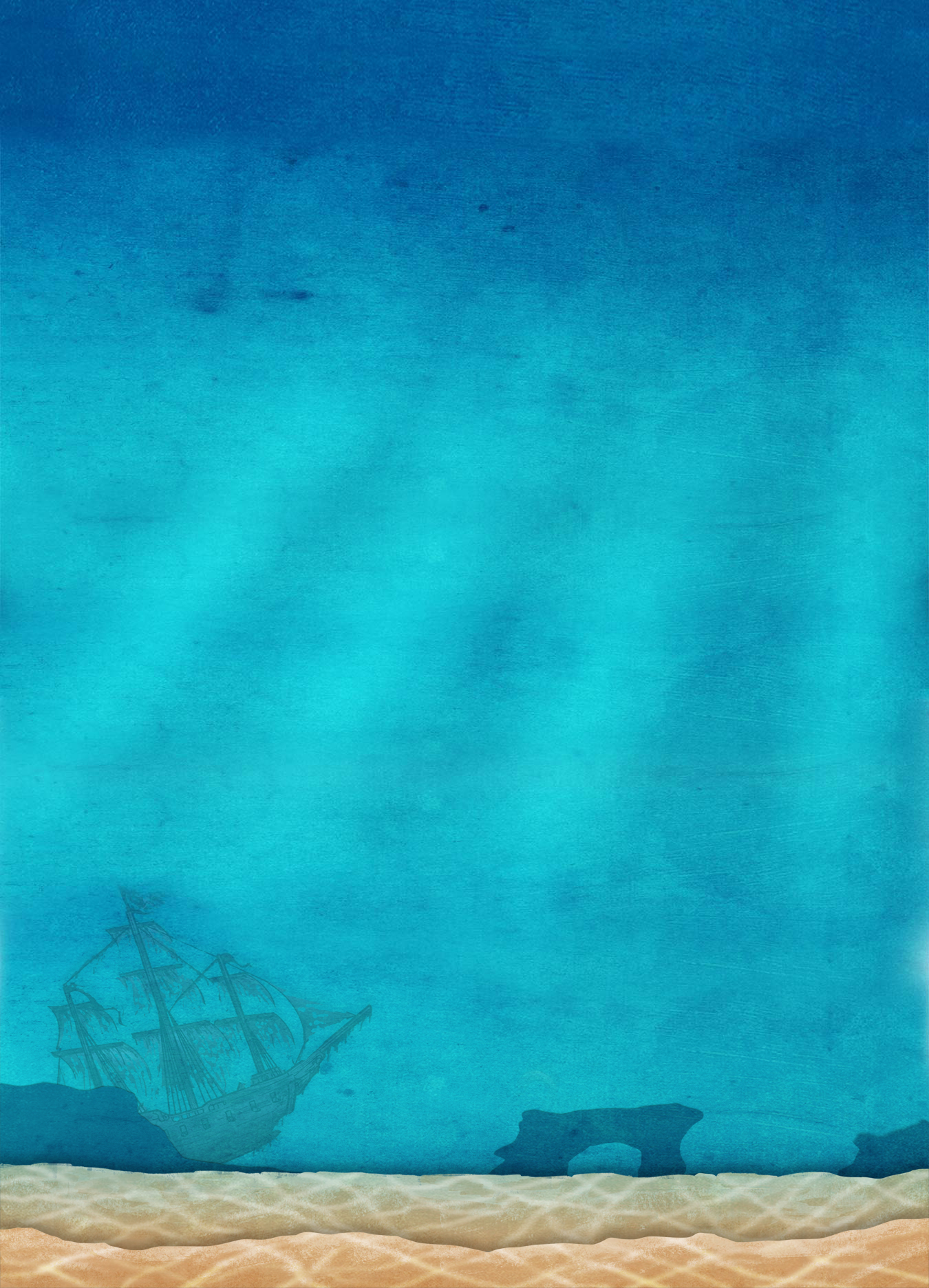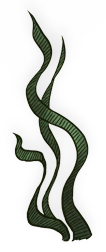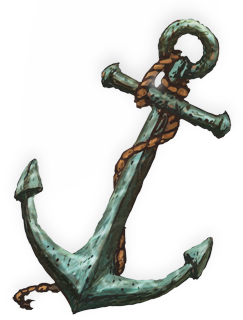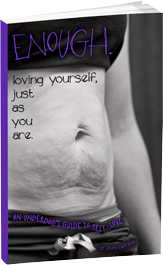In an earlier part of my life I served as a missionary. The experience crushed me and left me shattered and hollowed out.
But in a really good way.
This is Nkule. He was born in Winterton, KwaZulu-Natal, South Africa.
Well, technically he was born OUTSIDE of Winterton, since the ACTUAL place he was born was a tiny hut made of mud and straw well outside of civilization. No electricity, no running water, no plumbing of any kind. At least a one hour hike to the nearest hand-pump well. The clothes you see him wearing are the only clothes he owned.
I had seen Nkule for the first time about a week prior to the time of this photograph. When I saw him he was clean and sitting with his sister, his two cousins, and his grandmother. His grandma sought a meeting with “the missionaries” to seek counsel, and we had agreed to meet with her.
Nkule’s grandma was trying to find someone to help her. She recently had lost her second daughter to AIDS. She lost two daughters total, and her daughters left behind two kids each. The younger two, Nkule and Asanda, were Grandma’s biggest burden. They were the least healthy and too small to help with chores. She didn’t have enough food to feed all four grandkids and all of them were suffering. All of them were starving.
Grandma had to make a choice. A horrible, gut wrenching choice. She had to choose which kids to give away. Only she put it, which to “get rid of.”
I cannot even tell you how many unmarked graves I saw while I was in Africa, at least half of them less than three feet long. Horrifying. It was a very real option for this older, desperate woman to either put down her youngest, sickest grandchildren, or watch them die a slow and painful death by starvation.
For me there WAS no choice to make. We were going to save those kids. It’s what we were there for, the PURPOSE of our visit. The missionary’s MISSION. And also NO WAY were two innocents going to die inside of my circle of awareness. Not on MY watch.
The group I served with paid off local authorities and made arrangements for the whole family to stay in our living quarters. We planned out how to split our rations and bunk up to provide enough food and sleeping space. Things were going to be tight, but the kids would be fed and safe.
About a week after our initial meeting I and a few other missionaries drove into the nothingness to find the hut where the family was staying. On the day this picture was taken I was collecting Nkule to bring him home to live with me.
He was in the same clothes I’d seen him in a week before. He had caught a cold, was covered in mucous and flies, and was weak from hunger. When we got him back to our residence he lay on the floor and didn’t move. He looked around with big, fearful, curious eyes until he fell asleep. He slept for HOURS.
In this country where we go to the grocery store and fill our carts with poisonous, packaged food no better than garbage, this little boy was starving. Literally. He was pooched out in the tummy, moved around with arms and legs as thin as twigs, and in this picture he weighed less than twenty pounds. He was also suffering from thrush, an opportunistic, oral yeast infection brought on by the AIDS virus. Even after he was in my care it took about two weeks before he could eat more than broth and gruel; the inside of his mouth and throat were full of open sores.
But then it healed, and then he ate. And ate, and ate.
As his malnutrition dissipated his tummy started to shrink, leaving behind an empty skin pouch similar to post-natal pregnancy. He had been hungry for so long that his stomach grew extra skin to accommodate his starvation.
Over the course of my time in Africa I came to love that little boy. Once he was fed his body healed and he was just like any other healthy kid. He was very funny and laughed a lot. I think he would have played quite well with my two sons. They all would have enjoyed it immensely.
Nkule was quirky, a quirkiness developed by his lifestyle. He liked to stash bits of food off his dinner plate into his shirt pocket and save them for later. He would crawl behind or inside or under things to take naps. More than one time I freaked out because I couldn’t find him, only to discover he was sleeping under a box in the corner or outside in the dirt under a bush, curled up like a cat in a cat house and sleeping soundly.
Nkule was kind. And loving, and somewhat introverted. He liked to sit quietly next to me when I’d read. If I had a free hand he was trying to hold it. I was learning to speak Zulu and he spoke no English, but our hearts spoke nonetheless. We understood each other.
Nkule’s mother died of AIDS when he was three years old. Because his mother had AIDS and then breastfed her son, he also contracted the virus.
In developing countries an estimated one-third to one-half of all HIV infections are transmitted through breastfeeding.
Without treatment, the life expectancy for a child that contracts HIV through mother’s breast milk is generally less than nine years.
This picture was taken over 10 years ago.
At the time this picture was taken we guessed Nkule was about four years old.
I’m quite sure that Nkule has passed away.
I haven’t been able to confirm this because most of my contacts in Africa are… well, in AFRICA, and without internet or technology or ELECTRICITY, but Nkule was diagnosed with full blown AIDS about a month before I returned to the US. The odds of him being alive today are slim to none.
I really did love that little boy. In the deepest part of my heart I pray he didn’t suffer when he died. I pray that he was safe. And comfortable, and loved. I hope that someone was sitting next to him when it happened, like he used to sit quietly next to me while I read, and I hope someone was holding his hand like he used to hold mine.
The most painful and impacting change for me when serving in South Africa was the realization that I am powerless. In the grand scheme of things, to make big change in this world that so desperately needs to be made, I am powerless. Like one ant trying to move an apple, or one grain of sand trying to divert a flood, I am completely powerless to make big change.
Nkule was the start of that lesson. No matter how much I loved him, I could not save him. His fate was sealed by something outside of my control.
And his wasn’t the only one.
About three months after I took in Nkule I sat in a room at the local free clinic holding a two month old baby thrust upon me by a desperate mother. The mother had been told “the missionaries saved Nkule, they can help you.” I was THE LAST HOPE. I was supposedly “a miracle worker,” able to convert sick and starving kids to rare-for-any-of-them well rounded health.
The baby I held had been born with AIDS, putting her life expectancy at best under one year. The infant’s thrush was so bad her lips and mouth were crusted white with yeast and vomit. She’d been unable to eat for so long that she was past the point of no return… she couldn’t keep down water or formula. The clinic didn’t have the necessary supplies to run an IV, and even if they did the materials would have been in such short supply that the baby, a “lost cause,” would not have been top priority.
She was LITERALLY a skeleton covered with chocolate brown skin. Her yellowed eyes were wide with pain and filled with panic, staring from their sunken seats in her teeny, tiny face. She was so weak that she couldn’t cry, but she tried. Her whimpering, rattley wail still echoes in my head when I think of her gaunt, haunting face.
With all my education, with all my blessings and gifts and desires and intentions and money and opportunity, I could do absolutely nothing to save that baby.
And THAT BABY was one of thousands. TENS OF THOUSANDS. The waiting room held at least five other babies suffering the same fate.
I tried to keep the tears in check as I handed the baby back to her mother. I could barely get the words out past the lump of grief in my throat that was successfully trying to choke me. I shook my head, took a deep breath, and I apologized. “I’m so sorry, I can’t help her. I can’t save her.” I told her through a translator that “there’s nothing more we can do for her, just make her comfortable.”
“Comfortable.” What a crock of shit.
Through no fault of her own, that tiny body suffered more in her two months of life than most grown adults in our country suffer EVER. And yet we complain. We grow frustrated when our phones drop service, when the store no longer stocks our favorite brand and type of soap (because each brand has a lot of types). We demand to be accommodated for religious beliefs and personal life choices in every way, shape, and form. We expect to be catered to and empowered and coddled like helpless, infantile victims. We are all in search of what we DESERVE and to what we are ENTITLED without ever thinking that we should EARN WHAT WE GET, and GET WHAT WE EARN.
We find disgust in our own bodies because we see fat, even though it is fat and obesity that we PUT THERE by gorging ourselves on junk food because it’s JUST SO EASY TO EAT and it’s “just too hard to get it off.” We cut corners and cheat the system and think somehow we will outsmart and trick biology by taking a pill, or fasting, or being on “the new improved program” for weight loss.
What a crock of shit. All of it.
We HAVE “comfortable.” We ALL have “comfortable,” and we piss it away.
I’ve always thought that instead of vacations to Tahiti to “get away,” people that really want to escape their lives should go to Africa and hold babies that are dying of full blown AIDS. People don’t need ESCAPE, they need PERSPECTIVE. To really appreciate the life we’re blessed with, we need perspective. To fully appreciate the bodies we live in, we need PERSPECTIVE.
My second day back in the United States I went to the grocery store to buy bread. Have you ever gone to the store to buy bread? Do you REALIZE how many different kinds there are? In this great land of opportunity you think “hey, it’s bread, there’s lots of kinds of bread,” but HONESTLY, THERE’S NOT. ONLY HERE. In Africa we chose between WHITE or BROWN. NOT KIDDING. TWO KINDS, and if you were lucky you could have a loaf without mold on it. If you paid extra they would slice it for you.
I walked halfway down the bread aisle and stopped. I looked to my left, I looked to my right, and ten feet in each direction I was BOMBARDED by choices. “WHAT KIND OF BREAD DO YOU WANT LOOOOOK HOW MUCH YOU HAVE TO CHOOSE FROM CHOOSE CHOOSE NOW WHATKINDOFBREAD?!” I couldn’t choose, there were too many options.
I totally lost my shit.
In the middle of the bread aisle I sat down on my ass, pulled my legs up to my chest, put my face down on my knees, and I started to cry. For fifteen minutes straight I could not stop crying. Two employees came to ask me if I needed help, but I couldn’t even stop crying long enough to answer. I just shook my head and cried more.
All I could think about was holding that baby that was dying of AIDS, thrush, and starvation. All I could see was the look on the mother’s face, seeing her grief and desperation, watching her reap the worst punishment imaginable for whatever she had done to contract the disease she consequently passed on to her daughter. That mother was dying inside as her baby died in her arms.
BABIES WERE DYING, and MY BIGGEST PROBLEM RIGHT THEN WAS THAT I COULDN’T CHOOSE WHAT KIND OF BREAD.
Perspective.
Serving the dying and those suffering from AIDS taught me a lot about my limitations. Most missionaries, along with other do-gooders in the world, think THEY are THE ANSWER. “LET ME AT THE PROBLEM, I will fix it all!” They are powered by intentions and fueled by passion. Maybe that mentality is misplaced, for sure it’s a bit naïve, but it’s still admirable. I encourage all people that want to make change to keep wanting that. It’s good for the rest of us, and in hopeless times it’s all that’s left for the rest of the world.
I learned, though, that wanting to change things isn’t enough. That the depth and scope of the problems that exist in the world are so far beyond my ability to change them, me trying to change things singlehandedly is the same as trying to empty the ocean with a teaspoon. Sitting in that clinic surrounded by the suffering and dying children of KwaZulu-Natal I realized that I could only do so much, and “so much” was almost NOTHING. I realized that I couldn’t fix it all, and in that specific situation I couldn’t fix ANY of it.
I was powerless.
It was torturous in a lot of ways, but under my crushing grief and depression and disappointment there was a grain of hope.
“I can’t do it ALL, but I can do SOMETHING.”
I might be powerless to fix most of it, but I am not powerless to fix SOME. And I for sure am not powerless to fix ONE. I am not hopeless. And I am not helpless.
I can fix ME. That’s a start.
I can fix me. I can BE THE CHANGE I want to see and pay that change forward. I can make a difference by speaking up, and speaking out, and giving a voice to all of those that lack the ability or opportunity to speak for themselves.
I will talk. And I will listen. I will hold one hand today that needs held, even if it’s the hand of a stranger. I will smile at the woman in the checkout line with the stressed, exhausted face and three screaming kids and offer to help her unload her cart onto the belt. I will stop and ask the very slow, older woman in the parking lot if I can return her cart for her. I will let someone in that’s waiting to turn into traffic.
I will be patient with someone that has not earned it.
I will love those that are unlovable, and respect those that are disrespectful.
I will show grace to someone that has no reason to receive it other than that they BREATHE. And live, and emit light simply by existing.
I will be patient with myself and realize that although my body does not look or feel the way I’d like, it WORKS. And it’s healthy, and it will continue to serve me for a very long time. It will serve me even longer if I take care of it.
When I feel the desire to binge I will remember the mother that would have given me all of her very minimal material possessions if I could just help her baby eat.
When I feel the desire to starve I will remember the imperceptible weight of that tiny body in the threadbare, torn towel that served as her blanket. I will remember that even if I could not save HER, I can save ME. I will honor her by refusing self-imposed starvation. I will eat a meal that is healthy because she could not, and I will tell her story in the hopes that someone will find joy in the simple-but-under-appreciated opportunity they have to feed themselves.
I can rid myself of baggage and tethers that hold me down and hold me back. I can push forward to make the world a better place than the way it was when I found it. I can teach my children to love and give like I do, and they will effect change through THEIR lives.
The reality is that some will read this post and be upset by what I’ve said. “It’s too much. I can barely contain my own life’s chaos and disappointment, I don’t need to hear about how babies are dying halfway around the world.” They will say that thinking of such things is stupid. Morbid. Horrible torture, and “beyond our scope,” and pointless.
I disagree.
This isn’t meant to guilt anyone into thinking they should feel bad about AIDS orphans. If it is not on their heart to do so, then it’s not. There are THOUSANDS of cases of sadness in the world, this is just one.
This also isn’t meant to guilt anyone into thinking they shouldn’t appreciate their own life. Quite the opposite, actually. What this is meant to do is provide perspective. “What we have” is very rarely appreciated unless it is compared to “what others don’t.”
And oh my goodness friends, WE HAVE SO MUCH.
Through this journey toward healthy we’re all looking to find our joy. That’s the goal, right? To sift through the pieces and bits and nuggets that make up our life, discard the things that make us miserable and hold us down, keep the things that bring us joy and fulfillment, look for more pieces that we’re missing to fill all the empty spots. Like collecting trading cards. Some cards we’ve been dealt, some we’re stuck with, some we can trade. We’re all trying to put together the best set, one we can be proud of, one that makes us happy.
But.
Through all this talk about perspective, what I want you to think about and REALLY CONSIDER is that maybe the cards you’re holding, the ones you’re unhappy with and trying to trade away…
Maybe those cards aren’t as bad as you think they are.
And I don’t mean it like “do you know how many starving babies in Africa would trade cards with you right now?” When I was a kid my dad tried using that logic to get me to eat my peas. I didn’t buy it then and I’m not selling it now because I really didn’t like the peas, and I am not a starving baby in Africa. Neither are you. If you think that’s what I mean then you’re missing the point.
But it’s KIND OF the point.
In order to really appreciate what we have, we have to understand what others DO NOT.
You are NOT a starving, helpless, powerless, no-choice-for-yourself baby in Africa. So STOP ACTING LIKE ONE.
Most of us are struggling to find our way to a healthier, happier self. But let’s be honest, most of us just want to be skinny. None (or very, very few) of us are in this for our “HEALTH.” We SAY THAT because it justifies a deeper desire, puts a more dignified face on our lusty attempts to be nothing more than “fucking hot.” But really. There’s no doctor banging on the door saying “IF YOU EAT THAT YOU WILL DIE.” No ticking time bomb in our chest that will go off and blow us to bits if we eat pizza. We don’t HAVE TO be doing this.
Nkule died from a disease that he acquired without his consent. HE had no choice.
The little baby that died, SHE HAD TO DO IT. She had NO choice.
YOU HAVE A CHOICE. YOU ARE NOT THAT.
Perspective.
You get to choose. I GET TO CHOOSE. WE have OPPORTUNITY. And blessing. And regulation, and in our country someone would notice if you just disappeared and got buried in the backyard by someone that didn’t want to feed you anymore. We get to choose when we eat and how much. We are in control of our blood transfusions and sexual organs and use of hypodermic needles to be sure we don’t contract a scary disease with no cure. We are born in a country and place where women are in charge of their reproductive systems and their education and the way they feed their families and themselves.
DO YOU SEE?
The perspective shift isn’t “I have food, they have none, I’ve got it good.” Although that’s part of it, it’s DEEPER THAN THAT.
HERE’S THE THING. SEE THIS.
The perspective shift needs to be from “I have a disorder, I can’t control it, I just can’t eat healthy, I can’t help it, I hate to eat, I’m so fat, I always binge, I hate my body, I hate being this size, I hate myself, I hate my life, I have no choice,”
to
“THAT IS WHAT “NO CHOICE” LOOKS LIKE. I HAVE A CHOICE, I’m just choosing to not make it. I AM NOT POWERLESS.”
YOU ARE NOT POWERLESS.
Perspective.
You are not powerless. EVER. Not here, not in this country, not in this life. You always, always have a choice, and you always have the power to change. You might not be able to change ALL OF IT, or MOST of it, or even SOME of it. But you always have the power to change at least ONE.
You have for yourself the power to change the one that counts.
…….so. What’s stopping you?
============================================
For more information on the AIDS pandemic in South Africa, visit Develop Africa here, or visit Unicef.org.
The organization I was blessed to serve with has since become a part of Pilgrim Africa. You can learn about their current mission and program here.












Comments ( 0 )